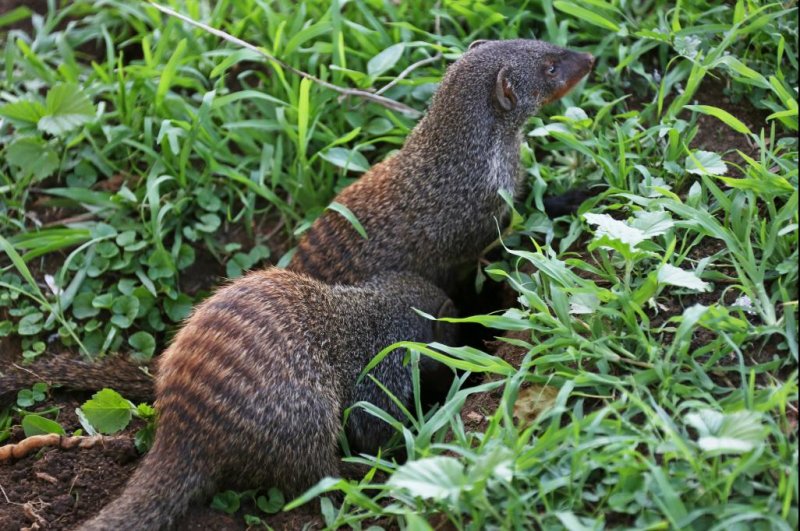A banded mongoose hunts for food in Uganda. Photo by Gernot Hensel/EPA
Feb. 13 (UPI) -- Helicopter parents be warned, new research suggests early strife paves the way for longevity.
Scientists at the University of Exeter measured the effect of early-life conditions on the longevity of male banded mongooses. Those that experienced difficult conditions in their first year of life tended to live longer than those born into nicer circumstances.
Whether a mongoose's childhood conditions were good or bad had no effect on how many children a mongoose fathered.
However, males born under highly variable conditions both lived longer and produced more offspring.
"Growing up in a poor or unpredictable environment isn't necessarily bad -- it can have advantages," Harry Marshall, an ecologist at Exeter, said in a news release. "It's not clear why variable early-life conditions were the best for male mongooses in terms of longevity and reproduction. It might be that male mongooses that experience different challenges in their first year are better prepared for those challenges later on."
The study -- detailed in the journal Ecology and Evolution -- relied on 14 years of observations of wild banded mongooses in Uganda. Researchers used rainfall as a proxy for the quality of early-life conditions. Wet years tend to yield an abundance of prey for mongoose to hunt and eat.
Researchers found rainfall totals had no effect on whether a mongoose survived his or her first year of life. Early conditions also had no effect on the longevity of females.
"It is surprising that early-life conditions affected males but not females," Marshall said. "We know that female mongoose survival is more sensitive to ecological conditions later in life, perhaps due to the greater demands pregnancy brings. This may hide any effects of conditions experienced during their first year."
Research has shown early-life environmental factors can influence long-term human health, too.
"Deciphering why these effects evolved through studies on wild animals has implications for human health," said researcher leader Michael Cant.















